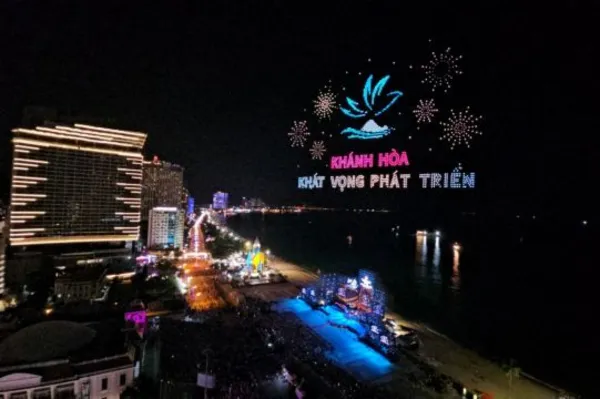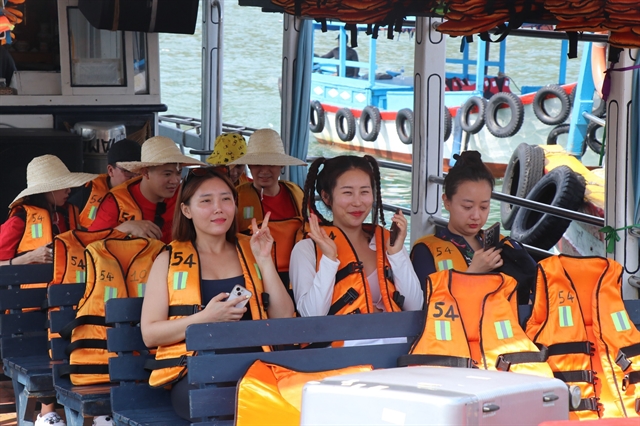 Life & Style
Life & Style

 |
| Korean tourists in a cruise to Nha Trang's islands. — VNA/VNS Photo Đặng Anh Tuấn |
HÀ NỘI — Tourism firms are calling for new policies to thrive, but fear they request may go unanswered for as long as 10 years.
That was the remark made by Vũ Thế Bình, Chairman of the Vietnam Tourism Association, at the seminar "Measures for the Tourism Industry to Make Breakthroughs" on Tuesday.
He said Việt Nam saw 12 million international tourists in 2023 and is expected to have 20 million in 2024, adding that although the figures are impressive, they are still low compared to the industry's potential.
He is concerned that the formulation and implementation of policies in tourism were so sluggish that it could take 10 years for new policies to be put in place to support the industry.
"Tourism firms have had to wait for 10 years to have favourable visa policies. If they want more, it could mean another 10 years of waiting," said Bình.
The Chairman suggested Vietnamese firms, during their wait for new policies, make the most of what they have to attract more tourists to the country.
Võ Việt Hòa, Director of the International Tourism Department at the Saigontourist Travel Company, revealed that Vietnamese firms get only a small slice of the pie in tourism as most of the industry's profits go to foreign firms.
He took the segment for Korean tourists as an example. The segment is growing steadily but foreign firms take on the most lucrative contracts and leave the low-profitable ones to Vietnamese firms.
"Foreign firms reap the most profits in the industry whereas Vietnamese firms receive almost nothing," said Hòa.
He also said the segment for Japanese tourists has not seen significant growth due to tightened spending among Japanese people.
The segment for Chinese tourists, meanwhile, did not grow as fast in the past two years as expected and will not see any better prospects this year until China eases its travel restrictions.
"We need more appealing visa policies because countries like Thailand, Malaysia and Singapore have already waived visas for Chinese tourists," added Hòa.
Ngô Hương, Director of Business and Marketing at Vinpearl JSC, cited high air fares and weak promotion activities as factors holding back the industry.
"The biggest costs for tourists visiting Việt Nam are airfares and getting around between places," Hương said.
"As a result, tourists often opt for nearby destinations in the region with similar climates and cultures but better promotions and more affordable airfares."
She called for a national strategy that centres around pocket-friendly airfares and active promotion activities to turn Việt Nam into a must-visit for global tourists.
Nguyễn Quốc Kỳ, Chairman of Vietravel Company, cited the sluggish formulation and implementation of policies in tourism as the main cause for a lower tourist return rate in Việt Nam than in other countries, notably Thailand.
He said visa policies in other countries change quickly to meet tourism demand whereas the change is slower and less flexible in Việt Nam, leaving the industry in limbo.
Poor planning is another problem, which makes investment in tourism more costly but less effective. The next problem lies in the weak ties between tourism players, resulting in a competitive rather than cooperative mindsets among them.
"We must develop more favourable policies for tourism should we see it as a leading industry," said Kỳ. — VNS




